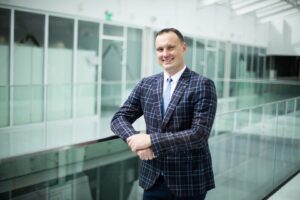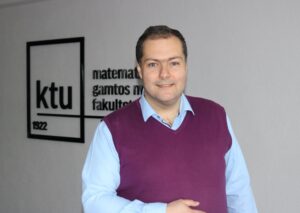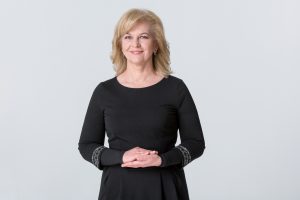The new programme covers both applied and fundamental research
The Dean of KTU Faculty of Mathematics and Natural Sciences is convinced that mathematics opens the doors to successful careers as there is no field in the world where it is not applied. She believes that ample opportunities wait for highly qualified professionals and independent researchers who can choose a post-doctoral researcher’s path or seek a career in business and industry.
“Studying at three universities will provide the opportunity to receive a high quality and broad-spectrum education, learning and growing alongside world-renowned scientists,” says Prof. Narkevičienė.
The new programme will cover both fundamental and applied mathematical research in areas such as differential equations, financial mathematics, mathematical modelling of biomedical systems, and mathematical theory of operations and its applications. Therefore, the students will have a wide choice for their research and thesis topic.
“Those students who are thinking about careers in banking, medicine or defence may be inclined to choose applied topics. However, this doesn’t imply that fundamental research in mathematics lacks significance. I believe it will soon find applications in business which has been adopting modern technologies very rapidly. In addition, theoretical topics could be more attractive to students thinking about an academic career,” says The Dean of the KTU Faculty of Mathematics and Natural Sciences.
Joint research projects already ongoing
Prof. Kopa is convinced that the future students of the joint PhD programme will find the opportunity to travel across three campuses while studying, fascinating.
“I think that a temporary move to another country or university is beneficial. It helps to make new contacts, to participate in joint research projects, to feel the pulse of other colleagues from the visiting countries,” says Charles University in Prague mathematics professor.
He notes that there is an Erasmus agreement between KTU and Charles University in Prague in place, which should help to enhance student mobility between the two institutions.
The Czech professor says he always feels very welcome at KTU and enjoys its friendly atmosphere. With his KTU colleagues Dr Audrius Kabašinskas and Dr Kristina Šutienė, Prof. Kopa has published several research papers in recent years and more are coming.
“We are interested in financial mathematics, especially pension system analysis. As far as the pension system is concerned, Lithuania has a much more developed second pension pillar than the Czech Republic and other Central/Eastern European countries, that is why I like to analyse funds in Lithuania and other Baltic countries,” explains Prof. Kopa.
Since in Lithuania, the 2nd pension pillar was established more than 15 years ago, an analysis can draw upon not only theoretical concepts but also real data. The project is funded by the Research Council of Lithuania.
“I also enjoy lecturing to KTU undergraduates and postgraduates. While students may sometimes be shy, they are always interested in new topics,” says Prof. Kopa, who wishes the best of luck to the new PhD programme in mathematics, organised together by KTU, Charles University in Prague and The University of Göttingen in Germany.





